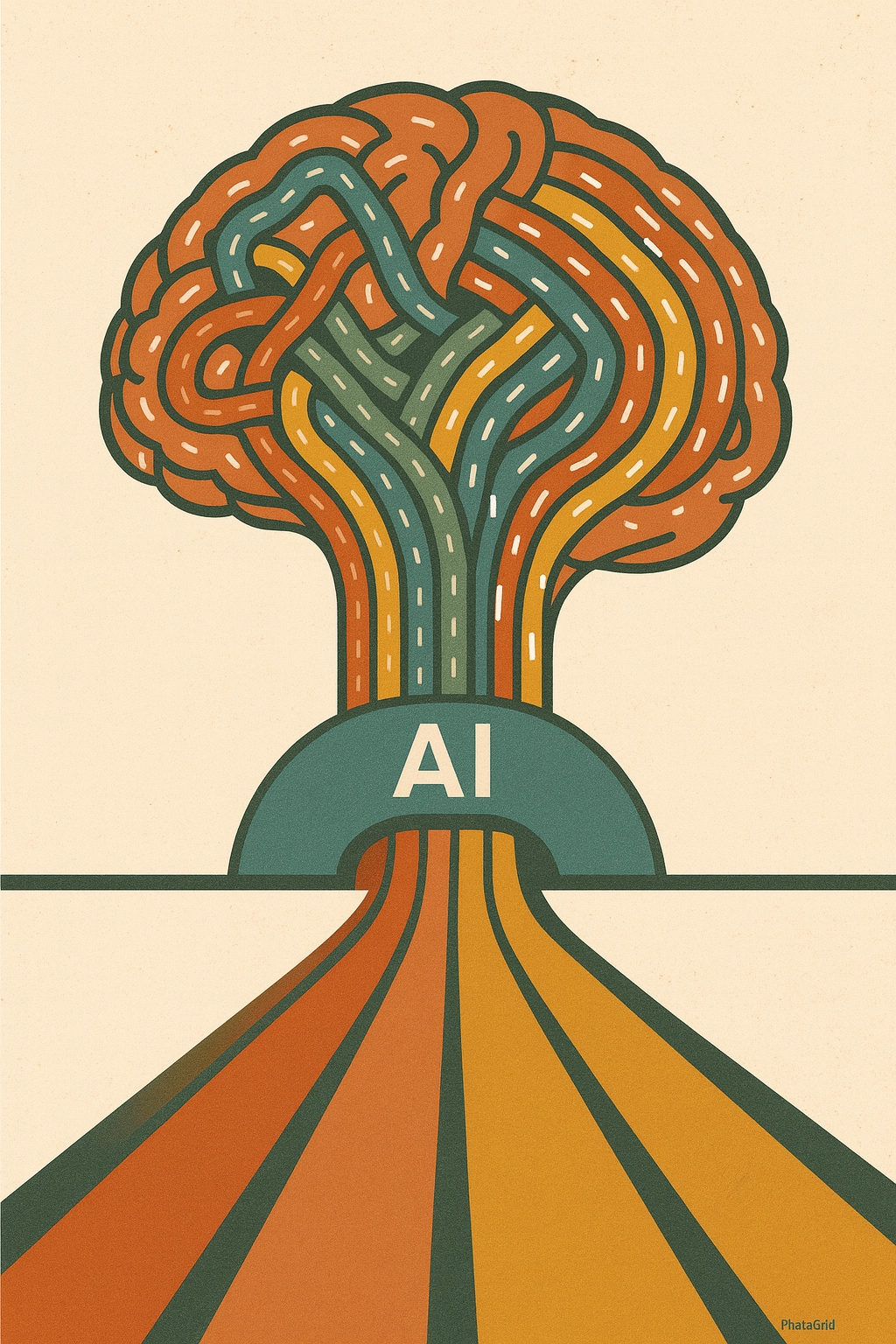- AI Strategist News
- Posts
- AI Weekly News Update: 09/15/2025
AI Weekly News Update: 09/15/2025
AI Strategist News: Navigating the transformative world of AI for your business

Table of Contents
This Week
Bottom Line Up Front
Demis Hassabis, Google's top AI scientist and 2024 Nobel laureate, believes "learning how to learn" will be the most important skill for the next generation due to rapid technological change.
Hassabis emphasizes the need for "meta-skills" such as understanding how to learn and optimizing one's approach to new subjects, in addition to traditional disciplines.
He predicts that artificial general intelligence could arrive within a decade, bringing dramatic advances, but also acknowledges the risks and the need for people to continually learn throughout their careers.
Business Use Cases
Why is this important
Agentic AI can help businesses break through traditional thinking and create sustainable models that benefit both the environment and the bottom line.
Agentic AI systems, which work together to autonomously gain new knowledge, can identify cause-and-effect relationships, provide proactive insights in the supply chain, and reduce the burden of multi-dimensional compliance and governance.
By using agentic AI, companies can design operating processes that achieve sustainability targets, refine their supply base, and cultivate trusted chains, ultimately leading to more resilient and sustainable business practices.
Bottom Line Up Front
The Anthropic Economic Index report analyzes how Claude, an AI model, is used differently across the US and globally, with the US being the largest user of Claude, followed by India, Brazil, Japan, and South Korea.
The report finds a strong correlation between GDP per capita and Claude usage, with countries having higher GDP per capita using Claude more often, and this correlation also holds within the US when comparing between states.
The data shows that the proportion of automated tasks using Claude has increased sharply, from 27% to 39%, suggesting a rapid increase in AI's responsibility and users' trust, with automation becoming more common than augmentation overall.
Businesses using Claude through the API tend to use it for task automation, particularly for coding and administrative tasks, with 77% of API conversations showing automation patterns.
Bottom Line Up Front
Tech professionals with AI expertise earn approximately 18% more than their counterparts without these skills.
Employers are willing to pay an average of 47% more to IT professionals specifically with generative AI skills.
Having AI certifications, such as those in generative AI, can lead to higher compensation and career advancement opportunities in the IT industry.
Bottom Line Up Front
AI has added $160 billion to the US economy since 2022, but only $45 billion is reflected in GDP, resulting in a $115 billion blind spot.
Goldman Sachs attributes this discrepancy to the Commerce Department's Bureau of Economic Analysis method, which treats semiconductors as intermediate inputs rather than investments.
The undercounting of AI's impact is due to the classification of high-performance semiconductors and the failure to capitalize the value of intangible assets, such as AI models and enterprise solutions, in GDP calculations.
PRESENTED BY HeyReach
10x your LinkedIn outbound. Unlimited senders, one fixed cost
For agencies, sales teams, and GTM experts who want to automate LinkedIn outreach, reach 1000+ leads weekly, and book more meetings.
Things to Pay Attention to
Bottom Line Up Front
The shift to AI transformation requires leaders who can think beyond traditional structures, and women have the opportunity to fill the leadership vacuum and create a more collaborative and creative work environment.
With the increasing use of AI, companies will require fewer staff, but skills like creativity and empathy will become more valued, and women can play a key role in leading this change and creating new opportunities for entrepreneurs and creators.
Companies that utilize AI must prioritize creating social impact and addressing the potential for increased inequity, by ensuring that everyone has access to the skills and knowledge needed to succeed in an AI-driven economy
Bottom Line Up Front
Giant warehouses, known as data centers, are being built across the US at a rate of more than two per week, consuming significant amounts of power and water.
There is no official record of the number of data centers being built, their locations, or their ownership, with big tech companies going to great lengths to hide these details.
The energy use in data centers generates heat, which is managed by massive cooling systems that emit a constant drone. The noise level from data centers is generally below the limits permitted for industrial zones, but can still be a disturbance to nearby residential areas.
Bottom Line Up Front
The author, Maccabi Lev-Ari, suffered from ADHD as a child, which affected his self-esteem and ability to focus, but discovered his talent for writing in college.
With the help of AI, Lev-Ari is now able to manage his ADHD and work at his full potential, organizing and funneling information to produce high-quality content, including articles and projects like The Maccabean.
AI has broken the bottleneck of Lev-Ari's ADHD, allowing him to channel his thoughts into action, and has given him the tools to work with his brain instead of against it, leading to increased momentum and self-belief.
Bottom Line Up Front
The East India Company's history of gradually acquiring power and governance roles is being repeated by today's AI and tech giants, such as Elon Musk's companies, which seek to leverage technical prowess to assume public functions.
Tech companies are taking on public operations, including content moderation, infrastructure control, and monetary governance, with algorithms amplifying engagement over truth and facts.
The transformation of power is happening through three variants: algorithmic capture of information systems, weaponization of critical infrastructure (e.g., Elon Musk's Starlink satellite constellation), and cryptocurrency's escape from public accountability.
The current system allows for "privatized gain without public reciprocity", where tech giants like Musk's DOGE have more power and control than democratic institutions.
The democratic oversight mechanisms are outdated and cannot keep up with the rapid pace of technological advancements, creating a "decision cycle advantage" for tech giants.
The "network state" concept, as described by Balaji Srinivasan, allows private interests to capture and control digital systems, shifting authority from elected institutions to algorithmic ones, and democratic societies must reclaim technological sovereignty to prevent permanent subordination to private interests.
Bottom Line Up Front
Parents should ask if the AI tools and policies in their child's classroom are safe, and read school AI policies for clarification, as advised by Katherine Goyette, computer science coordinator for California Department of Education.
Parents should inquire if their child has opportunities for deep reading, as this helps develop critical thinking and is a concern for children's literacy advocate Maryanne Wolf.
Parents should check if their child is writing unassisted, as neuroscientist Adam Gazzaley emphasizes that writing is essential for thinking, organizing, and having coherent ideas.
Your opinion matters! Your feedback helps me create better emails for you! Loved it 😍 😍 😍 Ok 🫤 Horrible 🤢 Got more feedback or just want to get in touch? Reply to this email and we’ll get back to you. _________________________________________________________________ Thanks for reading. Until next time! Layla and AI Strategist News Team |
|
Buy me a coffee







